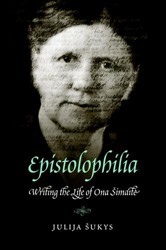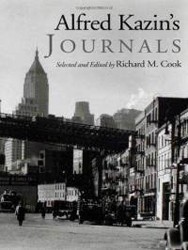By
– January 3, 2012
One day, Isaiah (Cy) Oggins quietly disappeared into the gulag, leaving few traces that he had ever existed. For more than fifty years, his son knew virtually nothing about his father’s life until Andrew Meier proceeded to discover who Cy Oggins was. The book that emerged reveals Oggins’ life and his role as the casualty in a shameful slice of Cold War history.
The Lost Spy is more than a biography. It is also a cautionary tale of misguided idealism and the consequences of treason. Cy is an ordinary man caught in the vortex of history, a Macbethlike figure whose conversion to Communism complemented the militancy of his wife, Nerma, and her devotion to radical ideology.
Meier describes the banality of espionage. The reader learns how deeply embedded throughout Europe were such clandestine activities as counterfeiting and safe houses (yavki, or designated residences where agents could meet and work) and multiple passports and hushed meetings in public spaces. Networks of spies were seemingly everywhere, as they burrowed into government positions and travelled freely as businessmen. As Meier writes, “As a well to do American connoisseur (of objets d’art), Cy could now take short trips at a moment’s notice…He could also carry large sums of cash in an assortment of currencies without arousing suspicion.”
But suddenly, after Nerma and their son, Robin, by now three years old, had returned to the United States, Oggins was arrested. The year was 1939, almost a decade after Cy and Nerma began their European adventure. Consigned to the prison camp at Norilsk in Siberia on “unconfirmed” charges of espionage and treason, Cy was sentenced nonetheless to an eight year term, and murdered in 1947, apparently on Josef Stalin’s personal orders. The reason? Possibly because his handler, Max Steinberg, had defected, and whenever “a Soviet intelligence officer was tripped up — or switched sides — the Center went after every agent in his control group.” Or, perhaps out of fear that upon his release and return to the United States, Cy might reveal secrets about the prison camps or the world-wide Soviet espionage network. But if it was this fear that led to Cy’s “state-sponsored murder,” it was ironic that Nerma had remained faithful to communism to the end of her life. Even after trying to purchase a passport to enable Cy to be released, Soviet intransigence led to the return of her check for a mere $420, yet she maintained her silence. Copies of archival documents.
Noel Kriftcher was a professor and administrator at Polytechnic University, having previously served as Superintendent of New York City’s Brooklyn & Staten Island High Schools district.





